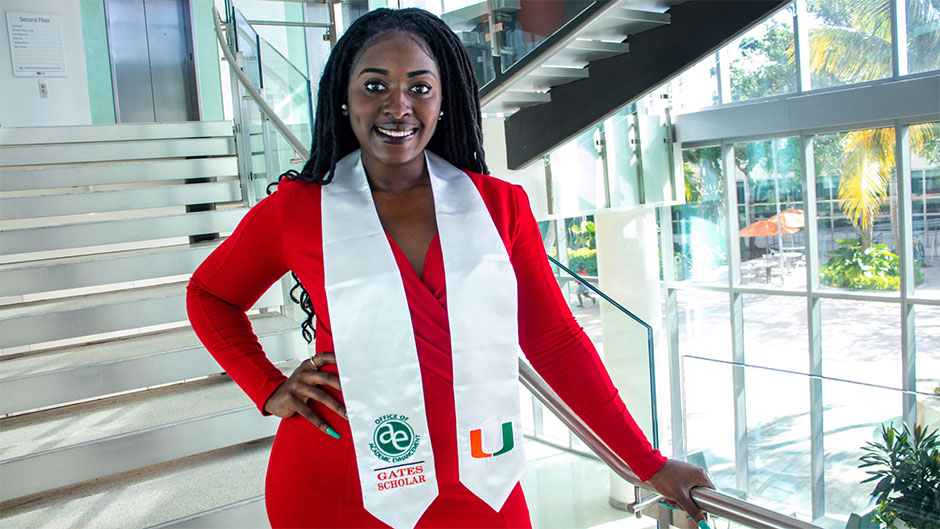It was small conversations and interactions, as she accompanied her mom to various doctor’s appointments, that first sparked Brianna Scott’s interest in healthcare and medicine. As a child, she was intrigued by the doctors caring for her mother and often spoke to them about what it means to be a physician. Watching as they worked to keep her mother alive and well, she understood the value of a strong healthcare team and healthcare system.
But Scott, B.S.P.H. ’20, also saw a system in which other people like her mother often do not get the care they need. “When I think of vulnerable populations,” she says, “I think of my mom, a single parent and a black woman from an urban environment. I think of my aunt who died from breast cancer. I think of my friends. I've always had examples around me of people that could benefit from a more equitable and more just healthcare system.”
This exposure to both sides of the equation is why Scott, a Chicago native, intended to study medicine when she first came to the University of Miami. But an Introduction to Public Health course her freshman year changed that — she understood then that there were many layers to ensuring an equitable healthcare system. “I fell in love with public health and the healthcare management side of things,” she says.
As a student at the School of Nursing and Health Studies, she continued to develop her research skills and knowledge of public health and healthcare management, an interdisciplinary field of study that meshed two of her interests: business and medicine. As her knowledge grew, so did her passion for finding solutions and creating a system that works to preserve the lives of vulnerable populations and ensures that everyone has the care that they need to lead healthy lives.
Through various summer internships, she contributed to research projects and work being done towards health equity. She participated in the Minority Health International Research Training Program (MHIRT) at the School of Nursing and Health Studies, a program funded by the National Institute for Health, which works to educate students from diverse backgrounds for careers in global health disparities research. And an internship with Blue Cross Blue Shield of Illinois, during which she worked on community health and even pioneered her own project on maternal health and perinatal healthcare, cemented her desire to focus on public health.
On campus, the Gates Millenium Scholar worked to raise awareness about health-related issues affecting women and minorities. She founded Black Girls Lift, UM’s first campus wide and MSA-affiliated female health and wellness organization, which hosted workouts and events on health, wellness, empowerment, and self-care. “I started this organization in order to empower other women of color on this campus,” she said, “and, ultimately, to combat growing health disparities existent among female communities of color.”
And now, as she graduates from the University of Miami with a double major in public health and Africana studies, Scott is intent on continuing to work towards health equity. She will be pursuing a Master’s in Public Health from Emory University in the fall. Eventually, she hopes to open and run a system of community health centers, beginning in Chicago's South Side, for underserved populations. “I want to make sure that people are getting equitable care and that they have equitable access to affordable and quality health care services,” she says.
In addition to promoting health equity, Scott has worked throughout her high school and college life to create spaces of belonging and inclusion. Throughout her time at UM, she worked closely with the Office of Multicutural Student Affiairs (MSA), her “home away from home,” in their efforts to make UM’s campus community more inclusive and engaging. She served as the Black Student Leadership Caucus Chair and as a Chair for the Students of Color Symposium.
She is also the recipient of the 2020 Nanga Award, given by the MSA at the University of Miami to a graduating student for their outstanding student achievements, both academic and in service to the University and the community.
As she begins her next chapter, she’s confident that UM has prepared her for what’s to come. “What I care most about is being in service of something greater than myself and I think UM, and especially the MSA, has helped to instill and develop those values in me. I’ve formed meaningful and lasting relationships with so many phenomenal people and I wouldn't trade that for the world. And I’ve learned so much about service, leadership, empathy, compassion, cultural humility, and community ----and for that, I am forever grateful.”

